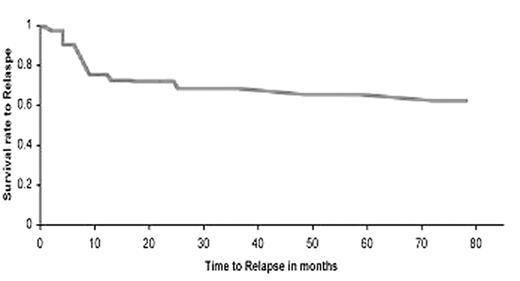Abstract
Unlike leukemia in which the goal of hematopoietic stem cell transplantation (HSCT) is myeloablation and immune suppression is an unwanted side effect, for autoimmune diseases the goal of autologous HSCT is immune ablation and myeloablation is an unwanted side effect. We, therefore, have performed autologous non-myeloablative hematopoietic stem cell transplantation (NST) in treatment refractory systemic lupus erythematosus (SLE) using an intense immune suppressive (“ablative”) regimen followed by autologous stem cell support to shorten the post NST cytopenic interval. Autologous NST has been performed in 45 patients with severe SLE treated over the last 7 years at Northwestern University (Chicago). Candidates were less than 60 years old with either renal (WHO class III or IV nephritis), CNS (cerebritis, transverse myelitis), or pulmonary (alveolar hemorrhage, interstitial pneumonitis, shrinking lung syndrome) involvement or vasculitis despite pulse cyclophosphamide, autoimmune transfusion dependent cytopenias despite steroids, danazol, and alkylating agents, or anti-phospholipid syndrome defined by Sapporo criteria with recurrent thrombi despite anti-coagulation. Peripheral blood stem cells were mobilized with 2.0 g.m2 cyclophosphamide and granulocyte colony-stimulating factor and CD34+ enriched (Isolex, Baxter). The immune ablative conditioning regimen consisted of 200mg/kg cyclophosphamide, and 90mg/kg equine antithymocyte globulin. One patient died from mucormycosis after HSC mobilization (treatment-related mortality-TRM). Four patients died of causes unrelated to NST at 11, 15, 18, and 30 months after NST. Three died of relapsed SLE, one patient with a history of Libman-Sacks died of MRSA endocarditis at 18 months after NST while in remission. Complete remission defined as a prednisone ≤ 10 mg/day with no evidence of active disease and no other immune suppressive drugs except hydroxychloroquine was achieved in 66% of patients. In these 45 patients, autologous NST for SLE had a 2% TRM and 66% long term disease free remission. If patients maintain remission for 2 years, relapse is unlikely.
Author notes
Corresponding author


This feature is available to Subscribers Only
Sign In or Create an Account Close Modal